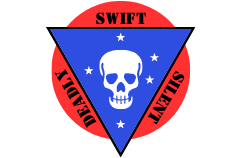New Year’s Day is right around the corner. This time a year brings out two types of people: those making resolutions and those who poo-poo making resolutions. I happen to be a fan of making New Year’s Resolutions. I might get some grief but, hey – I kept mine. Today I’ll share some of the things that have helped me make resolutions that are possible to stick to for an entire year.
This article contains affiliate links.
My Hx with New Year’s Resolutions
A little history might be in order. On December 31st, 2018 I had the bright idea to commit – publicly – to 10 minutes of daily dry practice. I didn’t plan it out, it just occurred to me and I acted without thinking about it too much. Somehow I was able to complete that resolution and my success pushed me forward in 2020. In 2020 I committed to just a bit more: dry practice (with a few sub-goals like fewer missed days and a longer streak), read 52 books, and stay tobacco-free. I was successful in almost all of those goals.
A few weeks ago (as you’re reading this) I sat down to write out some upcoming goals for the year 2021. I really started thinking about the nature of goal-setting. As I tried to plan goals I thought about what had (rather accidentally) made me successful in 2019 and again in 2020. I will offer you a few tips to making and keeping New Year’s resolutions. But first I’ll talk about a bit of “why.”
Why New Year’s Resolutions?
It’s very popular to talk about how you don’t make resolutions. In fact, I personally know way more people that talk shit about resolutions than actually make and keep them. I think there are some great reasons to, though. Of course these don’t have to happen on the New Year’s day – as detractors love to point out they can happen any day of the year. But the New Year is also just as good a time as any other. And it is a marker of time past, and of a new, blank-slate year in front of us. If you want to start your new regime on July 17th…cool! But there’s nothing wrong with starting it on January 1st, either.
Resolving to do something is a great way to actually make change. In 2017 and 2018 I knew I needed to dry practice more. I had a few days were I would go down to the basement with no real plan and draw my gun a few times. Sometimes I would keep this up for two or three days in a row. But I never got really serious with a plan and with time until I made an actual plan and acted on it. And guess what? I dry practiced 61+ hours in 2019 AND 2020 – probably 120x more than I did in 2018. I got results.
Let’s look at a few specific elements that made this possible. To be clear I’m not the self-help guru. I’m sort of a lazy dude. I like sitting on my butt, doing 12-ounce curls with the TV on as much as the next guy. That said, my advice may not be the most concise, it isn’t backed by any but my own anecdotal evidence, and it probably doesn’t use any cool buzzwords…so take it for what it’s worth.
How to Make (and Keep) New Year’s Resolutions
As I said, I’m not a life-coach. I’m not an expert in goal-setting. I probably mess up about as much as I succeed. But these things helped me, and maybe they’ll help you a little, too.
Resolutions ≠ goals. Be specific.
If your ultimate goal is to lose weight or be a “good shooter,” you need to get more specific in your resolutions. If you resolve only to “lose weight”…well, how are you going to get there? Losing weight may be the goal but it’s a piss-poor resolution. You resolution should be the steps necessary to achieve the goal.
What are those steps? Hitting the gym x times per week? Cutting out drinking on weekdays? Limiting your intake to x calories per day? A combination several separate things? Your resolutions should reflect the specific steps necessary to get to the goal. While “losing weight” is an immense topic with thousands of opinions, “walk five miles, four times per week” isn’t. It’s very specific, and it’s very easy to know where to start, and how to chart progress.
A great way to get specific: make your resolutions quantifiable. “Dry practice more” isn’t quantifiable. “Dry practice 10 minutes per day” is. Here’s another example: as you’ll see in an upcoming post, one of my ultimate goals is to learn Spanish. But my resolution isn’t “learn Spanish” which is non-specific and non-quantitative. Instead, the resolution is to devote a few minutes per day studying Spanish. That’s a very specific, quantifiable goal.
Make challenging but realistic resolutions.
I probably could read a decent-sized book in a day. For some chunks of this year I probably had the time to do that for a number of consecutive days. But to maintain that pace would have required just about all my time and attention – it would have turned reading into a full-time job. While I might have been able to stick with that pace for a few days, or even a couple of weeks, I would have burned out pretty quickly (and my girlfriend would have probably gotten mad at me for sitting around reading all the time).
Extreme diets are probably the poster-child for non-sustainability.
Again, the idea is to challenge yourself, to get a bit outside your comfort zone…not to entirely rearrange your life to satisfy the demands of an unrealistic resolution. You should try to choose a quantity of whatever (exercise, dry practice, etc.) that is actually sustainable.
That can be a difficult balance to strike, but remember, you can always modify your goals as conditions on the ground indicate. Absolutely don’t have time for that 45-minute/5-day workout? OK, adjust down to thirty minutes, or cut back to three days – that’s still a million times better than doing nothing. Likewise if your initial goals were weak, i.e. “read five books this year,” and you’ve read five by April, step it up. Reset the goal to make it a challenge.
Make yourself publicly accountable.
One thing that kept me going with dry practice this year was the fact that I would have to face my readers. I would have to report that I succeeded – or failed – in doing what I urged them to do. That kept me going with tobacco and books, too. And it will (hopefully) keep me going next year, as well.
I highly recommend you make yourself publicly accountable. You don’t have to start a blog to do so. You can use your social media accounts (if you’re going to have them, get something positive out of them). If you don’t have social media – or don’t want to use them – use your spouse, your parents, or your kids. Use your co-workers – send out a mass email at your office, or post your resolutions on the bulletin board. Let your friend group know. Peer pressure works on me in that way, and I’m guessing it probably does on you, too.
Parting Shot
This post isn’t to brag about how great I am. I don’t do everything perfectly. Hell, I do a lot of things really imperfectly, like most people. My hopes in writing this post is that it inspires you to do a little better this year than last year, and keep me on track. That’s all; I would really love to see more people be stronger, smarter, and better at just about anything, and I need your motivation to get there myself.
Happy New Year!





